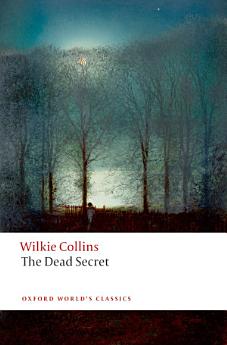The Dead Secret
កក្កដា 2008 · Oxford University Press
សៀវភៅអេឡិចត្រូនិច
369
ទំព័រ
family_home
មានសិទ្ធិ
info
reportការវាយតម្លៃ និងមតិវាយតម្លៃមិនត្រូវបានផ្ទៀងផ្ទាត់ទេ ស្វែងយល់បន្ថែម
អំពីសៀវភៅអេឡិចត្រូនិកនេះ
"Oh, my God! to think of that kind-hearted, lovely young woman, who brings happiness with her wherever she goes, bringing terror to me! Terror when her pitying eyes look at me; terror when her kind voice speaks to me; terror when her tender hand touches mind!" Porthgenna Tower on the remote western Cornish coast. Moments before her death, Mrs Treverton dictates a secret to her maid, never to be passed to her husband as she had instructed. Fifteen years later, when Mrs Treverton's daughter, Rosamond, returns to Porthgenna with her blind husband, Leonard, she is intrigued by the strange and seemingly disturbed Mrs Jazeph's warning not to enter the Myrtle Room in the ruined north wing. Strong-minded and ingenious, Rosamond's determined detective work uncovers shocking and unsettling truths beyond all expectation. A mystery of unrelenting suspense and psychologically penetrating characters, The Dead Secret explores the relationship between a fallen woman, her illegitimate daughter, and buried secrets in a superb blend of romance and Gothic drama. Wilkie Collins's fifth novel, The Dead Secret anticipates the themes of his next novel, The Woman in White in its treatment of mental illness, disguise and deception, and the dispossession of lost identity. Yet a series of comic figures offsets the tension, from the dyspeptic Mr Phippen to the perpetually smiling governess, Miss Sturch. Displaying the talent and energy which made Collins the most popular novelist of the 1860s, The Dead Secret represents a crucial phase in Collins's rise as a mystery writer, and was his first full-length novel written specifically for serialization. ABOUT THE SERIES: For over 100 years Oxford World's Classics has made available the widest range of literature from around the globe. Each affordable volume reflects Oxford's commitment to scholarship, providing the most accurate text plus a wealth of other valuable features, including expert introductions by leading authorities, helpful notes to clarify the text, up-to-date bibliographies for further study, and much more.
អំពីអ្នកនិពន្ធ
Ira B. Nadel is Professor of English at the University of British Columbia in Vancouver.
វាយតម្លៃសៀវភៅអេឡិចត្រូនិកនេះ
ប្រាប់យើងអំពីការយល់ឃើញរបស់អ្នក។
អានព័ត៌មាន
ទូរសព្ទឆ្លាតវៃ និងថេប្លេត
ដំឡើងកម្មវិធី Google Play Books សម្រាប់ Android និង iPad/iPhone ។ វាធ្វើសមកាលកម្មដោយស្វ័យប្រវត្តិជាមួយគណនីរបស់អ្នក និងអនុញ្ញាតឱ្យអ្នកអានពេលមានអ៊ីនធឺណិត ឬគ្មានអ៊ីនធឺណិតនៅគ្រប់ទីកន្លែង។
កុំព្យូទ័រយួរដៃ និងកុំព្យូទ័រ
អ្នកអាចស្ដាប់សៀវភៅជាសំឡេងដែលបានទិញនៅក្នុង Google Play ដោយប្រើកម្មវិធីរុករកតាមអ៊ីនធឺណិតក្នុងកុំព្យូទ័ររបស់អ្នក។
eReaders និងឧបករណ៍ផ្សេងទៀត
ដើម្បីអាននៅលើឧបករណ៍ e-ink ដូចជាឧបករណ៍អានសៀវភៅអេឡិចត្រូនិក Kobo អ្នកនឹងត្រូវទាញយកឯកសារ ហើយផ្ទេរវាទៅឧបករណ៍របស់អ្នក។ សូមអនុវត្តតាមការណែនាំលម្អិតរបស់មជ្ឈមណ្ឌលជំនួយ ដើម្បីផ្ទេរឯកសារទៅឧបករណ៍អានសៀវភៅអេឡិចត្រូនិកដែលស្គាល់។








